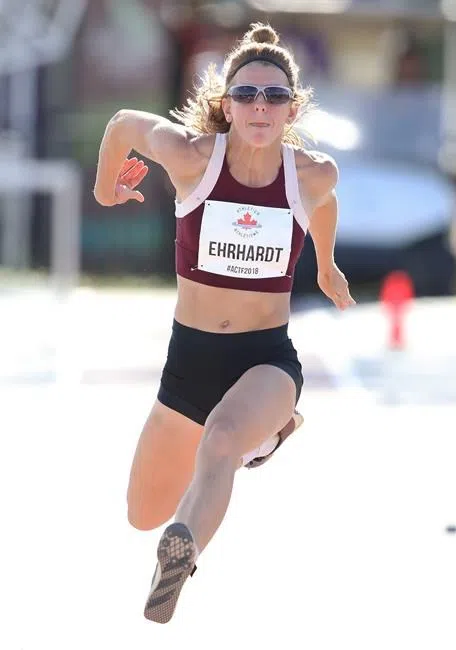
Ehrhardt hopes to become first Canadian woman to do triple jump at Olympics
TORONTO — The black rubber floor in Caroline Ehrhardt’s home gym is lovingly worn. Every scuff in her “Shred Shed” is a memory.
When Ehrhardt and her fiance Taylor Stewart bought their London, Ont., home last year, and built a gym in their shed, the flooring they laid came from Ehrhardt’s childhood home.
Ehrhardt’s dad Klaus had built his athletic daughter a triple jump pit in their big backyard in Espanola, Ont., and it’s where she’d spend up to three hours most nights from Grade 8 through Grade 12. He ordered the 30-metre runway online from the U.S. It arrived in rolls of rubber, a half-inch thick. He dug the pit with a Bobcat.
And so when Klaus died suddenly of a heart attack last summer, two days after Ehrhardt won her sixth Canadian triple jump title — her seventh came last month in Ottawa —she pulled up that old runway to lay as the floor of their gym.